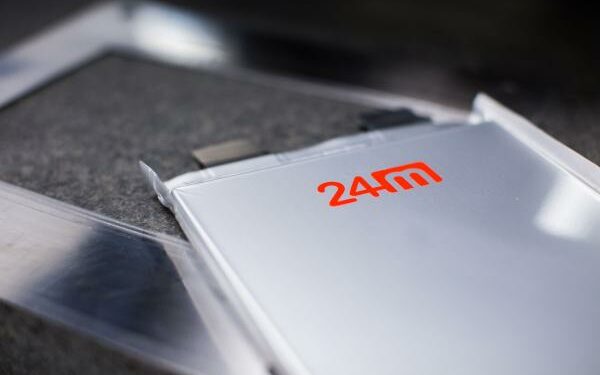US-based 24M has reached a “significant milestone” towards scaling up development of its novel semi-solid lithium-ion technology.
The Massachusetts company said it has developed and delivered “commercially viable, high energy density lithium-ion cells with energy densities exceeding 250 watt-hours per kilogram (Wh/kg)”.
The development of the high energy density nickel manganese cobalt (NMC) cells is part of a US$7 million three-year contract awarded to 24M in 2016 by the United States Advanced Battery Consortium (USABC), in cooperation with the US Department of Energy.
Work under the programme is targeted at developing electrochemical energy storage technologies that support the commercialisation of hybrid, plug-in hybrid, electric and fuel cell vehicles. To achieve the final USABC 2020 density target of 350 Wh/kg by the end of 2019, 24M has developed “a multi-faceted, lab-proven approach that includes a novel use of silicon for high energy density anodes”.
According to 24M, the work to date at its pilot battery facility “exceeds the current state-of-the-art industry benchmark for electric vehicle applications”.
Meanwhile, 24M said it had also delivered similar NMC cells with energy densities above 280 Wh/kg to an unidentified industrial partner. Higher energy densities were achieved with those cells by “optimising” 24M’s semi-solid electrode technology, which the company said eliminates the use of a pore-clogging binder, enabling higher active material densities than can be achieved with conventional electrodes.
In 2018, 24M raised a total of $21.8m in series D financing to help speed up deployment of its technology for the EV market.












